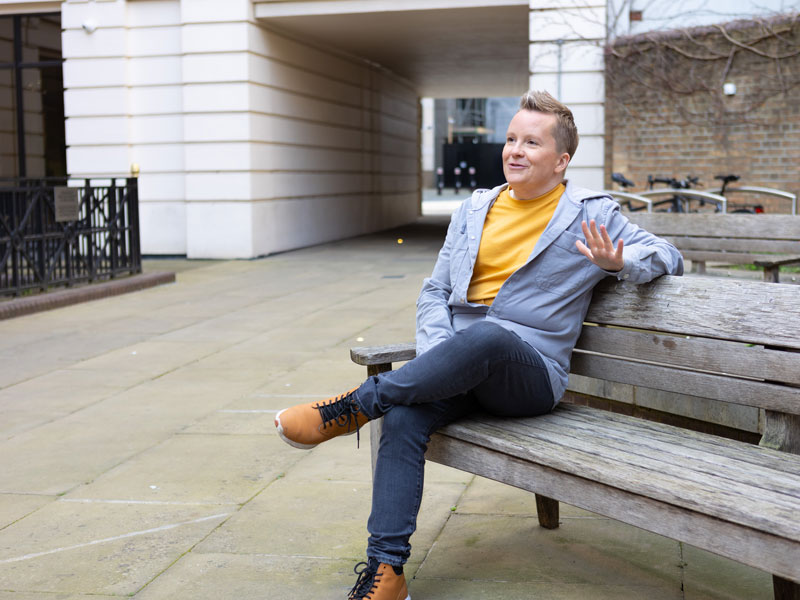
‘It’s lonely at the top’ might strike you as a terrible cliché, however it is important that it is used. As we mark the start of Mental Health Awareness Week in the UK (May 9–16), which takes ‘loneliness’ as its 2022 theme, it’s clear the pressure faced by CEOs is quite unique.
Let’s start by acknowledging that there is a flipside to the rewards that come with success. I often find that the people I work with have business challenges that are totally consuming – whether it’s strategy, operations, people, growth – everything they do is at the lack of themselves.
CEOs are so ingrained into their business that their own needs simply aren’t met. It can be easy to forget that you’re only one person, and like everyone else, human. In the last two years alone, modern leadership has been under intense scrutiny. Tough decisions have been made during a period of immense transition. As we emerge out of the Covid-19 crisis, there has been little time to process what has taken place. Loneliness, grief, and the personal impact of leading through an unforgiving global pandemic have created the potential for a legacy of loneliness unless you can navigate a path back to yourself.
It may come as a surprise that the tools and strategies I equip modern leaders with for personal growth to deal with these situations are taken from my arts background. I learnt the art of clowning from the masters in Italy. From this, I instil key lessons that in essence can be defined as ‘work well, play harder’. Creativity, kindness, acceptance and play are all key ingredients in my coaching toolkit, and I always start at the same point: Be seen.
This must start with vulnerability. Being open and vulnerable with yourself and your senior leadership team is made much easier when you share your own stories and challenges.
Tell the truth
Faced with an unprecedented number of unknowns, I remember during the pandemic I was approached by a CEO of a multi-billion-pound company in the financial sector. Like many, she was inundated with questions from staff for direction on the return to work. I spoke to her, and she told me how lonely she felt. My advice was simple. ‘Tell the truth’, I said. She then explained to her staff that she did not know what was happening, while explaining what she thought might happen. This shift to vulnerable communication led to the most positive staff response she had ever experienced.
Being proactive with personal growth is so important. It avoids overwhelm, which in turn leads to loneliness. Every CEO, MD and executive that I know who is thriving does so because they are part of a mastermind group, a peer group, or have a touch point with me.
I’m not saying traditional business coaches aren’t useful, but they are very output orientated. They are focused on goals and next steps relating to the company and not the individual. I create a space for the person to be human, held and listened to. It is the biggest antidote to loneliness. Having this space for external support, particularly if you are in a new CEO role where you’ve entered a toxic work environment, for example, can be very beneficial.
It can also be hard leaning into colleagues when you are experiencing challenges. At the end of the day, you’re their boss and they know it. But you’re simply not serving yourself if you do not make time for you. You’re either facing loneliness or burnout.
You might be reading this and thinking ‘I’m not lonely, I’m fine, I go running/cycling/on holiday to wind down’. However, you’re still processing everything on your own. A common issue facing clients I work with is that by the time they go on holiday, they’re just too exhausted to spend time with their children.
The onward journey
One of the key habits missing from the day-to-day lives of CEOs I meet is scheduling time for reflection. I would highly recommend blocking out time in your diary to reflect on what you’ve done each week and I guarantee it is the most important investment you can make in yourself.
Moving forwards starts as soon as you have the courage to say ‘yes, this has been really tough and I feel pretty lonely’, you will soon see things start to change. How much things change depends on your individual journey, however creating openness and a dialogue with a coach, or at work, can help reintroduce the notion that we are all human beings. Perhaps another cliché, but as important as the one I started with, asking yourself the question ‘how am I really doing’ creates the space for humanity and reflection.
For more information on 1:1 CEO coaching visit: https://emmastroud.london

